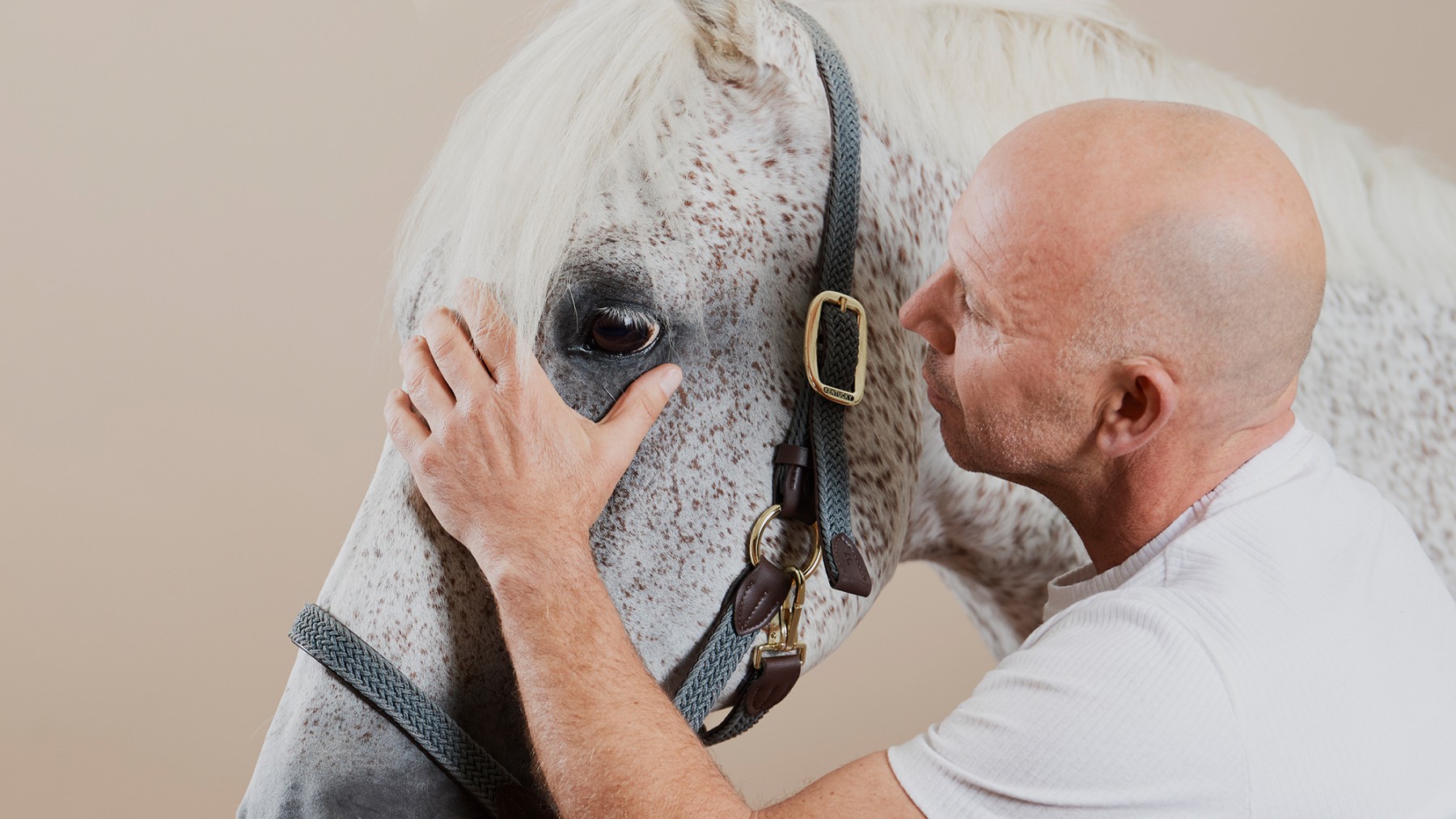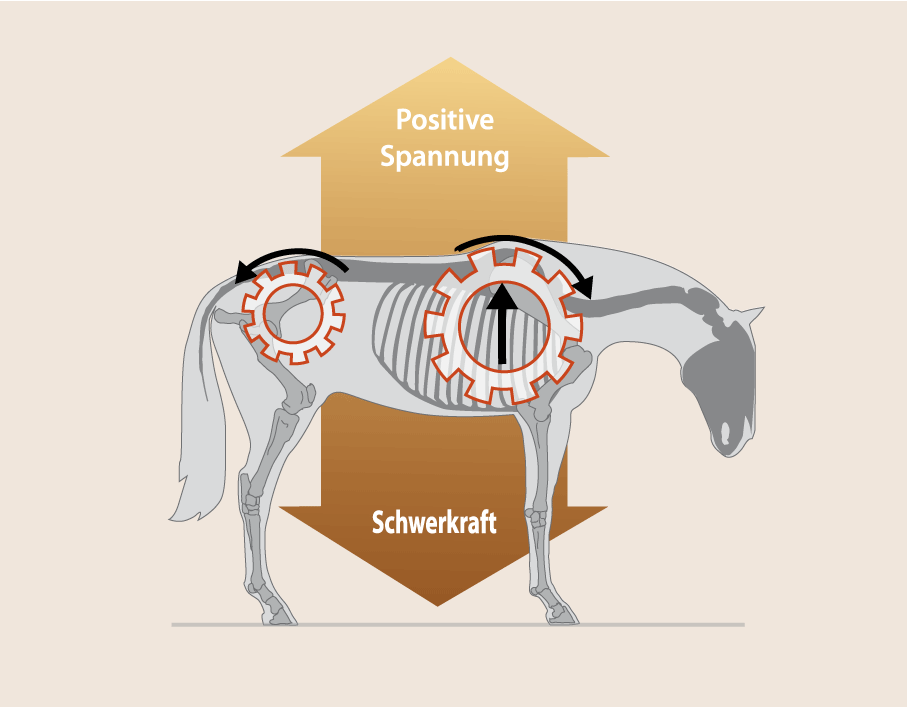
The horse needs stability, without it it cannot move. Stammer Kinetics™ helps you to recognize and influence the various mechanisms of stability and their effects on the health and performance of your horse. The core element of Stammer Kinetics is a biomechanical thinking model. This model explains the movement of the horse and represents it graphically. It combines the cogwheel model of the dynamics of the horse's external form with the development of its kinetic energy through the mechanism of suspension.

This biomechanical model based on the Stammer Kinetics™ concept shows in a simple and comprehensible way how the horse stabilizes itself against gravity with the rider's weight.

Like all fleeing steppe animals, the horse develops its kinetic energy largely through suspension. Sports science refers to this muscle activity as plyometrics or the stretch-shortening cycle. This activity differs fundamentally from human movement and therefore requires a new conception of treatment and training strategies.

Organized in sensible functional chains, stability and suspension enable the rider to control the horse's kinetic energy in the sense of fine aids and to steer it in sensible directions. Abstract concepts of riding theory (suppleness, going over the back, collection) and their backgrounds thus become understandable, comprehensible and easier to implement.